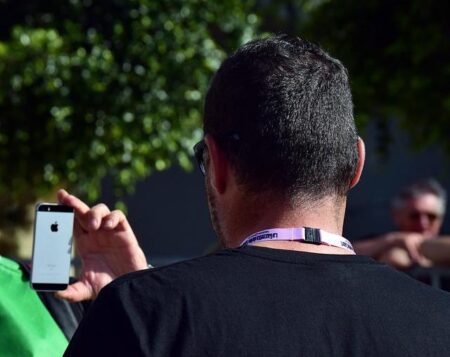Strava’s Bold Initiative to Combat Cheating: What It Means for the Athletic Community
In a decisive effort to uphold the credibility of its platform, Strava—the widely used social network for athletes—has recently removed an extraordinary total of 4.45 million user activities flagged as fraudulent. This sweeping purge underscores Strava’s dedication to fostering fair play, especially within virtual competitions and leaderboard rankings. As concerns mount over various forms of data manipulation, including GPS spoofing and fabricated workout entries, this crackdown highlights the company’s resolve to maintain a reliable space for millions of runners, cyclists, and fitness enthusiasts globally.
Understanding Strava’s Anti-Cheating Measures and Their Impact on Users
The removal of millions of suspicious activities marks a pivotal moment in Strava’s ongoing campaign against dishonest behavior on its platform. This rigorous cleanup not only reinforces the integrity that users expect but also sends a clear message: cheating will no longer be tolerated in this increasingly competitive environment.
As endurance sports continue gaining popularity worldwide—with global running participation estimated at over 60 million annually—the temptation to falsify performance data grows alongside it. By cracking down on deceitful entries, Strava is encouraging athletes to compete authentically while preserving trust among its community members.
- Tighter Monitoring: Athletes should anticipate more detailed reviews of their activity logs before results are accepted or ranked.
- Heightened Responsibility: Users must recognize that submitting inaccurate data risks penalties or removal from leaderboards.
- Preserving Competitive Fairness: The legitimacy of challenges and rankings will improve as fraudulent performances are weeded out.
This initiative compels athletes not only to adjust how they document workouts but also how they engage with peers—emphasizing honesty as foundational in digital athletic communities.
The Technology Powering Activity Verification: How Algorithms Detect Cheating
The backbone behind this massive activity deletion is an advanced algorithmic system designed by Strava engineers. These algorithms analyze uploaded workout data meticulously for signs inconsistent with genuine human performance patterns. Some critical indicators include:
- Pace Anomalies: Sudden bursts or drops in speed that defy physiological limits expected during running or cycling sessions.
- Suspicious Location Data: GPS traces showing impossible travel distances between points within short timeframes suggest tampering or device errors.
- Anomalous Upload Frequency: Unusually high numbers of daily activities far exceeding typical user behavior raise red flags about authenticity.
This proactive approach aligns with broader trends across digital platforms combating fraud through machine learning and pattern recognition technologies. While some users worry about false positives affecting legitimate efforts—especially amateurs experimenting with new training methods—the consensus supports these measures as vital steps toward equitable competition online.
| Main Concerns | Evolving Effects |
|---|---|
| User Activity Scrutiny Intensifies | Deters dishonest submissions but may inadvertently flag genuine workouts requiring appeals processes |
| User Trust & Platform Reputation | Cultivates confidence among community members valuing fairness over inflated achievements |
| Catalyst for Technological Innovation | Paves way for improved detection tools benefiting all fitness tracking services globally |
Sustaining Authenticity on Strava: Best Practices for Athletes Moving Forward
The recent elimination spree serves as a timely reminder about the importance of transparency when sharing athletic progress online. To nurture an honest environment where everyone can thrive fairly, consider adopting these guidelines when using Strava:
- Diligent Recording Practices: Ensure your logged workouts accurately represent your real-world efforts without embellishment or shortcuts like manual entry unless clearly noted;
- Candid Device Disclosure: If you rely on gadgets prone to occasional inaccuracies (e.g., wrist-based heart rate monitors), openly communicate any limitations rather than masking inconsistencies;
- A Culture Of Encouragement Over Competition Alone: Use your profile not just as a leaderboard battleground but also as a source of motivation by celebrating others’ milestones genuinely;
- Diligently Report Suspicious Behavior When Observed:If you notice questionable activity undermining fair play principles within your circles or challenges, help maintain integrity by alerting moderators;
- Select Challenges Wisely And Honestly Represent Your Results :Engage only in contests matching your skill level; avoid inflating accomplishments just to climb ranks artificially;
- < b >Focus On Personal Growth Rather Than External Validation :Prioritize self-improvement metrics instead of obsessively comparing yourself against others’ stats — fostering healthier mindsets benefits all participants .
Together , these practices contribute toward building stronger bonds rooted in respect , trust , and shared passion — qualities essential if platforms like Strava hope remain relevant amid growing scrutiny around digital authenticity .
A Final Word: The Future Landscape Of Digital Fitness Tracking And Fair Play Â
The purge removing millions from active records signals more than just immediate enforcement—it heralds an era where accountability becomes central across online fitness ecosystems worldwide . As other apps observe this precedent set by one industry leader , similar policies targeting accuracy verification may soon become standard practice . With nearly half a billion monthly active users engaging across various health apps today (Statista ,2024) , ensuring truthful representation remains paramount both ethically & commercially . Whether such stringent measures ultimately boost user confidence long-term depends largely upon transparent communication channels between platforms & their communities along with continuous refinement minimizing unintended consequences . For now though , it stands clear : maintaining fairness isn’t optional anymore—it’s fundamental if we want technology-enhanced sport experiences built upon trust rather than deception .
This watershed moment invites reflection from every athlete logging miles digitally — embracing honesty enriches not only personal achievement narratives but strengthens collective commitment towards authentic competition everywhere.< / p >
< / article >











